Paul Cornell
Books: Fantasy | Mystery | Queer
Shadow Police: London Falling (2013), The Severed Streets (2014), Who Killed Sherlock Holmes? (2016)
Witches of Lychford: Witches of Lychford (2015), The Lost Child of Lychford (2016), A Long Day in Lychford (2017)
Masked (2010)
London Falling (2013)
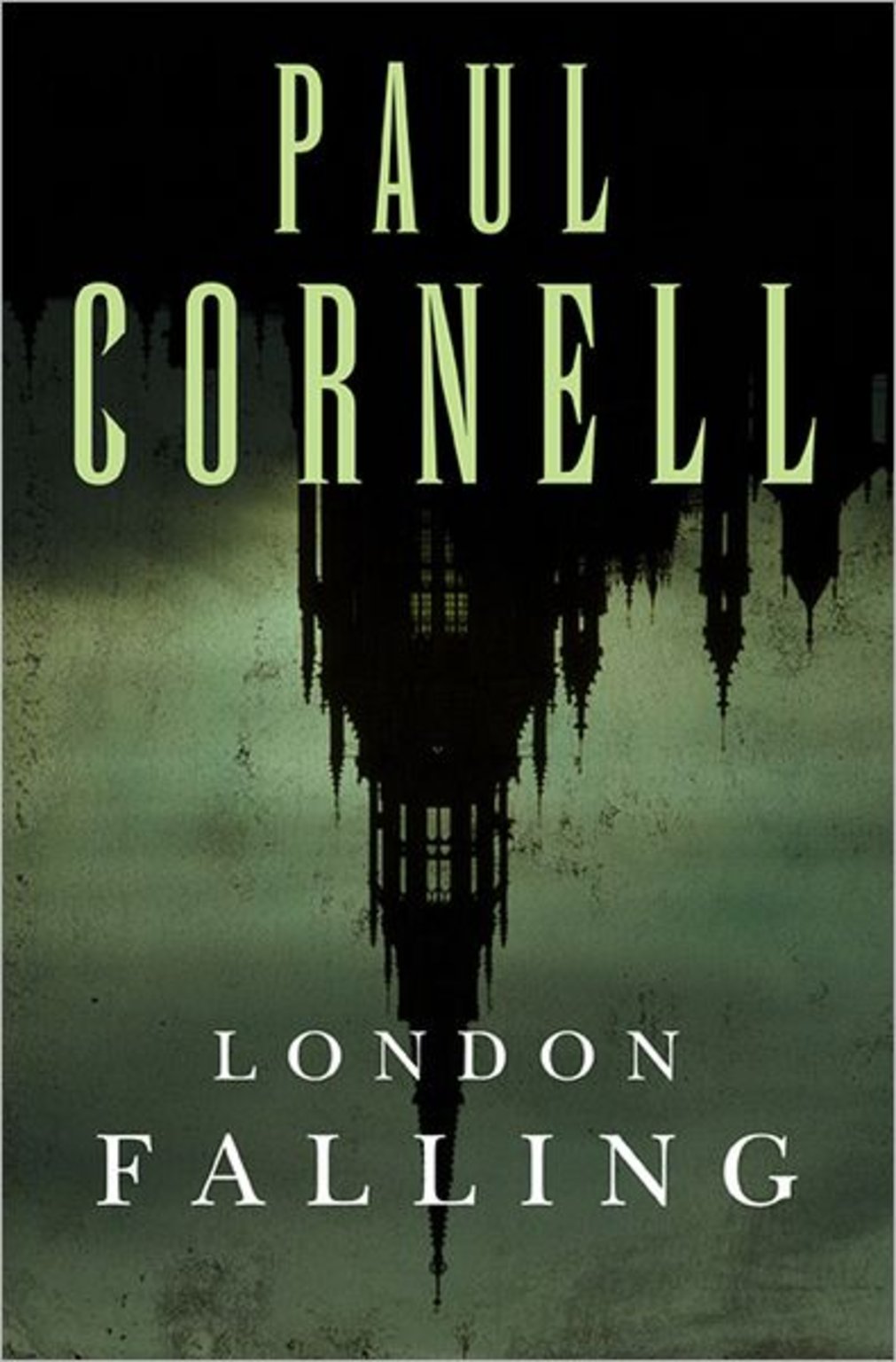 I started reading, and briefly thought I had entered in the middle of the story. I hadn't. It was actually the beginning, but for the characters, they believe they are in the end game. Two cops working undercover to take down a crime lord, the DI running the two UCs, and the analysts who works so far in the background absolutely no one ever sees her except her direct supervising.
I started reading, and briefly thought I had entered in the middle of the story. I hadn't. It was actually the beginning, but for the characters, they believe they are in the end game. Two cops working undercover to take down a crime lord, the DI running the two UCs, and the analysts who works so far in the background absolutely no one ever sees her except her direct supervising.
And so the story begins like it's the end of a British police procedural. But then something happens, and things get very weird, and very bad, very quickly.
I fully admit this book–once I figured out what the hell was going on–hit a sweet spot for me. British + mystery + fantasy = WIN in my book. At least if it's done well.
If you want a quick primer going in, there are four main characters: Costain & Sefton who are the UCs, Quill who is running them, and Ross the analyst.
Costain and Sefton are undercover because they can slip into the world of crime more easily than others, simply because they are men of color.
Interestingly, this parallels the Rivers of London series, where you have main characters who are London cops and men of color, which makes things even harder, because the automatic assumption is that they made the force solely because they are minorities.
It's also fascinating that these characters are written by white men. Seeing as how I'm not British or black or male, I can't speak as to the authenticity of these characters, but to me (a white American woman) I was surprised to discover the authors were, in fact, white men. Whether Brits of color would feel the same is something I would be interested in learning.
"Might as well look as if we're together," said Sefton, under his breath, as he pressed the tea bag against the side of his cup to try and force out a bit of flavor. "Seeing we're the only black guys in here."
"The New Age," agreed Costain, "does not recruit in line with best practice.
What I particularly liked about the series was how the characters discovered the existence of the supernatural. There are no special hints to you as a reader that something beyond the every day is going to happen, so the reactions seem very natural, and I became very curious as to how the characters were going to deal with/come to terms with the fact the world was not what they were expecting.
I also liked the many fascinating bits and pieces scattered through the story.
"It is time that defines whether something is real or not. Time is what makes what people experience a tragedy or a love story or a triumph. Hell is where time has stopped, where there's no more innovation. No horizon. No change."
There were also to fabulous sentences that struck me as absolutely perfect, but they are HUGE spoilers.
SPOILER
And then the mob ripped her fucking heart out.
That single sentence is so brutal, yet something you desperately WANT to happen. The book could have ended there, and I would have been satisfied. But it didn't end there.
But now there was suddenly this great lump of pain and history within their bodies. They now knocked over furniture to get to those three children, because suddenly they needed to hold them so much.
Again, without context this sentence doesn't mean anything, really, but within the context of what happened to those characters, that very idea is almost breathtaking. To have something lost to you, returned to you suddenly and unexpectedly.
END SPOILERS
And this, far earlier in the book:
"Don't ever be afraid of the responsibility of offering an opinion."
That probably needs pinned to a bulletin board somewhere.
This book isn't for anyone. If you don't like Simon Green's Nightside or Mike Carey's Felix Castor or Ben Aaronovitch's Rivers of London, then don't bother. It's dark, and very bad things happen.
But I also found it utterly fascinating.
Yes, it was initially confusing, but once you get past that, it's well worth the initial work of figuring out who's who.
Characters: Kevin Sefton, Detective Inspector James Quill, Anthony Costain, Lisa Ross, Sarah Quill, Superintendent Rebecca Lofthouse, Joe, Mora Losley, Rob Toshack, Sammy Cliff, Alfred Toshack, The cat, DS Harry Dobson, Harry’s dad, Dr Firdos Irfan, Rabbi Peter Shulman, Reverend Toby Franklin, Inspector Ben Cartwright, Brutus, Linus McGuire, Jack in the Green, Terry Franks, Julie Franks, Charlie Franks, Haley Franks, Joel Franks, Jessica, The Smiling Man
Published by Tor
- April 2014 | Rating: 9/10
- November 2021 | Rating: 8.5/10
Audio Book (2013/2014) narrated by Damian Lynch
I really liked the audible version of London Falling. Detective Inspector James Quill is heading the investigation (which includes undercover officers Costain and Sefton) to take down crime lord Rob Toshack. Intelligence analyst Lisa Ross has personal reasons for wanting Toshack taken down. All four are shocked to discover that there is an unseen world that seethes with evil and is linked to Toshack's criminal empire.
I'll warn you, the start of this book is confusing. Costain is probably corrupt, Quill doesn't trust Costain, and Sefton has his own secrets to hide. Nevertheless, once they come together as a team, they turn out to be very good at what they do, and it's fascinating what they uncover.
And the narrator was very good, and very enjoyable.
Published by Audible Studios
- March 2015 | Rating: 8/10
- November 2022 | Rating: 9/10
- February 2024 | Rating: 8.5/10
- November 2025 | Rating: 9/10
The Severed Streets (2014)
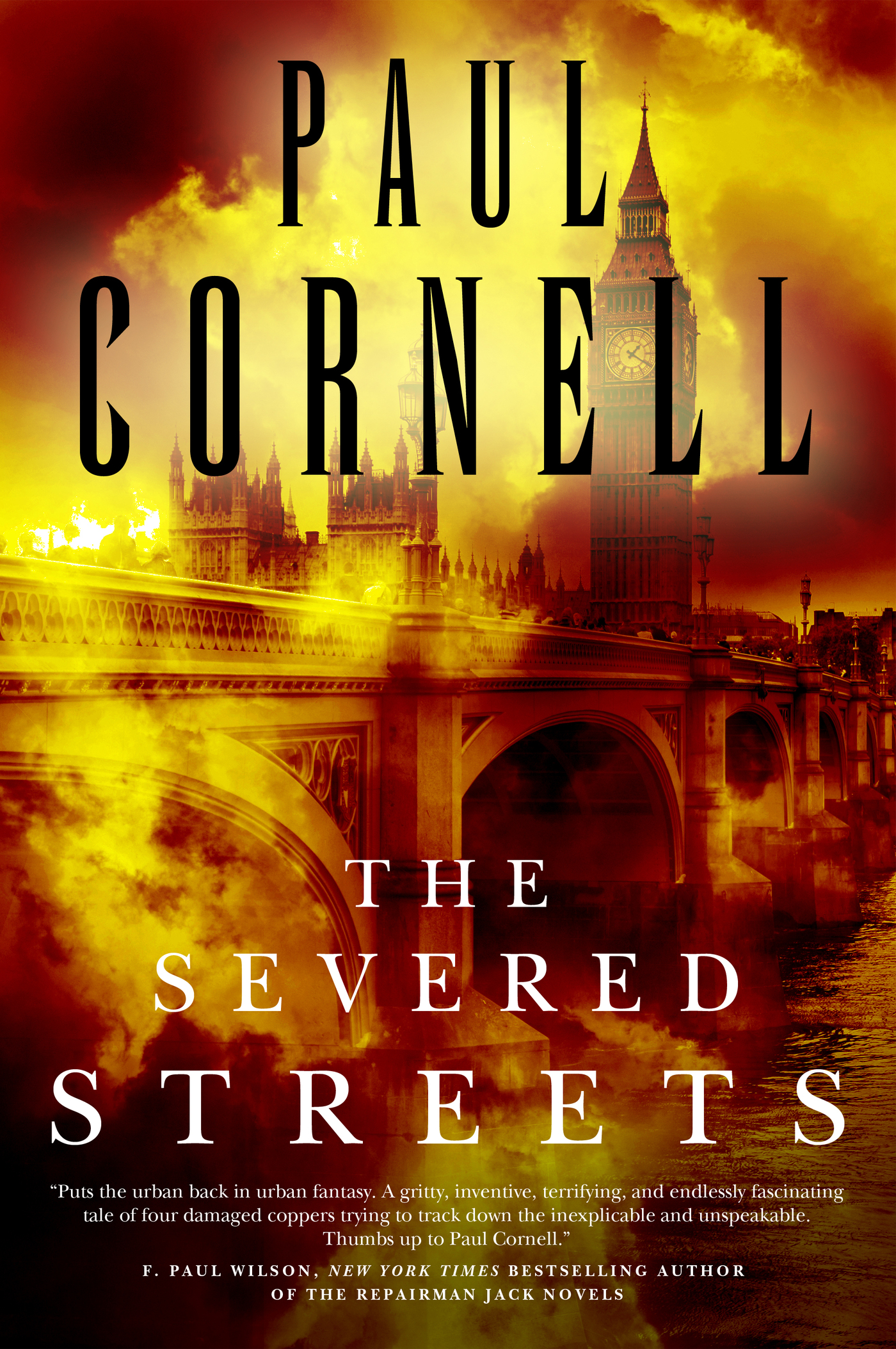 Well done, Paul Cornell, well done.
Well done, Paul Cornell, well done.
He turned round and saw that he'd encountered the long legs of a man in black jeans, black T-shirt and black leather jacket who was sitting in a discreet corner of the bar, his mobile phone in his hand. He had a long face, caring, slightly sad, with a worried look around his mouth, and a shock of dark hair. He was looking as if Quill had disturbed him in the middle of a thought.
Quill realized, to his surprise, that he recognized this man. He didn't quite know from where, but he had a feeling that it wasn't in a police context.
'Can I help you?' said the man.
Quill became aware that he had been staring, and at the same moment knew where he'd seen this guy before. It had been on the inside flap of a book he'd read to Jessica, and on another that Sarah had been reading in bed, and he'd been surprised that the same bloke had written both. 'Here,' he said, 'aren't you that writer?'
I knew who that was immediately, and THIS bit is fabulous.
Once the story moved along and I got to the further bits, I was all, "Wait, what? That didn't really just happen, did it?"
Like the first book, it took me a bit to keep everyone and everything straight at the beginning. But once I got settled into the story, I fell in completely and stayed up past my bedtime to finish.
One of the strongest things about his writing is the dialog.
He blinked awake, realizing that this time the noise wasn't the voice of his child, but of his phone on the bedside table, ringing. He lay there for a moment. There was a lovely pre-dawn light through the curtains.
'Would you please answer that,' said Sarah, 'and tell them to fuck off?'
Quill saw who was calling and answered the phone. 'Lisa Ross,' he said, 'my wife sends you her fondest regards.'
'If it's her, I actually do,' amended Sarah.
'Listen,' Tunstall said immediately. 'I want to change my statement.'
'Now, wait—' began Quill.
'What I said happened was impossible. It couldn't have gone like that, could it? One of the protestors must have got into the car—'
'Mate,' said Costain, 'we believe you.'
Tunstall stopped short. 'You what?' Then he slumped, a tremendous weight on him again. 'Oh, right, I get it: you're the good cop.'
Costain pointed to himself, looking surprised. 'Bad cop.'
'Surreal cop,' said Sefton, also pointing to himself.
'Good cop,' admitted Quill. 'Relatively. Which is weird.'
Ross just raised an eyebrow.
Tunstall looked between them, unsure if they were taking the piss.
Being interviewed by this unit, thought Quill, must sometimes seem like being interrogated by Monty Python's Flying Circus.
'So, DI Quill,' said Forrester, 'what can you bring to the table?'
Quill had prepared this report mentally over the last few days. 'We've placed undercovers in relevant communities and are already hearing useful chatter, though none yet of operational relevance.' He wished he could mention the silver, but couldn't think of a way to do it.
'So, you've got fuck all?'
'Yes, sir.'
'Fantastic. Keep up the good work.'
I will warn you that this story is dark. I suppose it could be considered bordering on horror, but it's not startle-scary horror (the stuff I hate) it's more the manifestation of all the horrible things in the world, horror.
As far as he and the others could tell, they were some sort of … well, they were either a metaphorical representation of various psychiatric disorders – of human misery, basically – or they actually were that misery, and psychiatry was the metaphor.
If you don't like dark horrible things, this story isn't for you. But it's the kind of dark and horrible that mirrors society, rather than monsters that attack from under the bed horrible.
Me, I loved it.
Characters: Kevin Sefton, Detective Inspector James Quill, Anthony Costain, Lisa Ross, Sarah Quill, Jessica Quill, Superintendent Rebecca Lofthouse, Joe, Neil Gaiman, Barry Keel, Terry Keel, John the Rat King, Michael Spatley MP, Brian Tunstall, Sir Geoffrey Staunce, Jennifer Staunce, Rupert Rudlin, Detective Chief Inspector Jason Forrest, Geoff Sumpter, Frankie Boyle, Russell Vincent, Maggie, Miss Haversham, Bernie the Bitch, Anna Lassiter, Rita and Sue, Mary Arthur, The Smiling Man
Published by Tor
- November 2016 | Rating: 9/10
- November 2021 | Rating: 9/10
Audio Book (2014/2015) narrated by Damian Lynch
Even though I *knew* the big surprise of this story, it still came as a shock when it happened.
This is an amazing entry into this series, and the narrator continues to do a fabulous job.
Published by Audible Studios
- August 2017 | Rating: 9/10
- December 2022 | Rating: 9/10
- February 2024 | Rating: 8.5/10
- November 2025 | Rating: 9.5/10
Who Killed Sherlock Holmes? (2016)
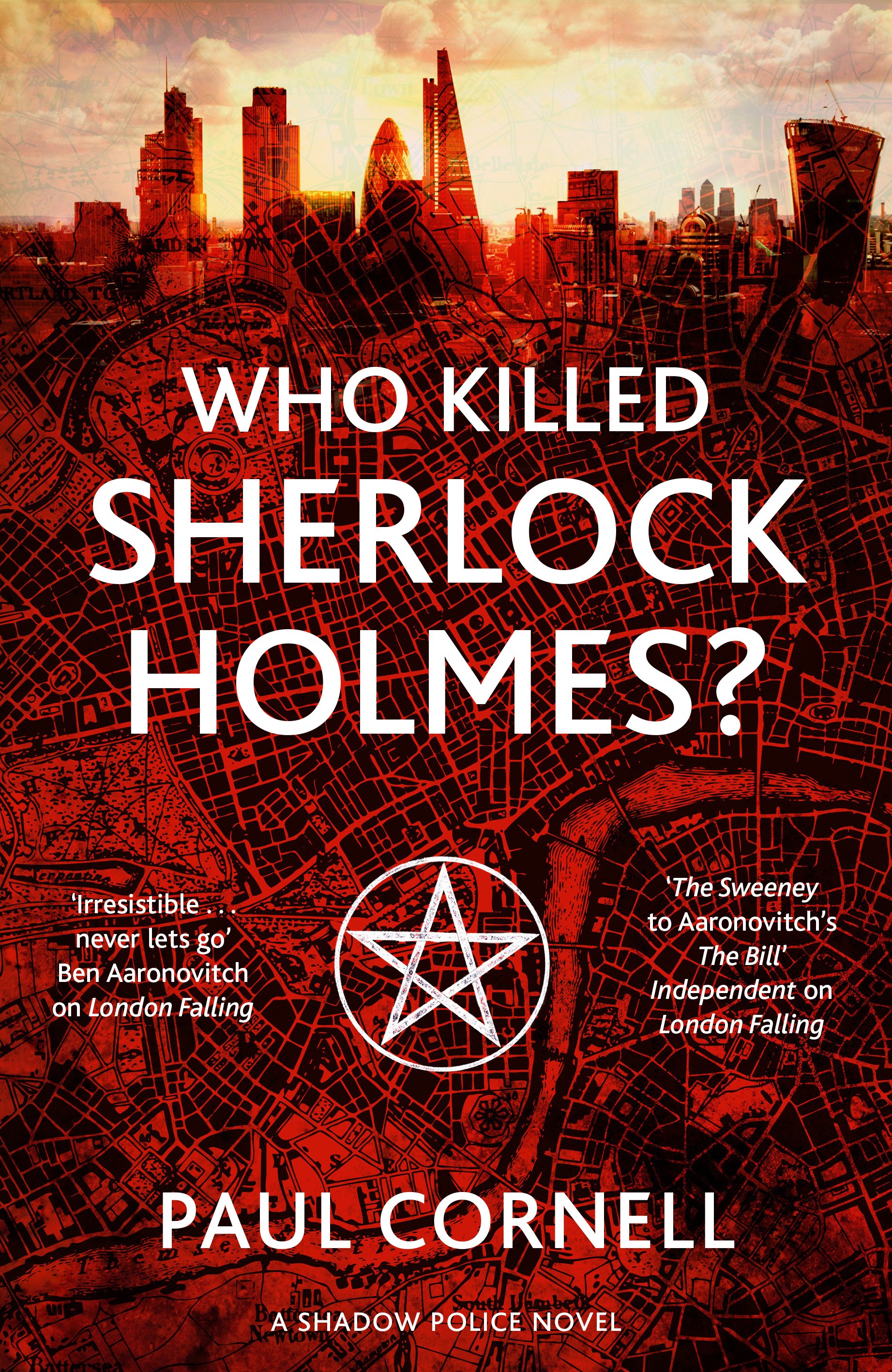 This is the third Shadow Police book, and finds the group in sad shape.
This is the third Shadow Police book, and finds the group in sad shape.
The three other members of his team were standing apart from one another, looking off in different directions, like they were an indie band posing for an album cover.
Quill is troubled by his sojourn in Hell, Ross is listless, having given up all her future happiness on the possibility of saving her father from Hell, and Costain is struggling with the guilt of having betrayed Ross. Only Sefton's life is going well, but that's in spite of their work.
When a man is found poisoned, with the phrase "Rache" written in blood above his body, it looks like someone is recreating Arthur Conan Doyle's A Study in Scarlet. The production groups for all three shows Sherlock Holmes shows are in town, so it looks like someone wants attention, but Quill's group discovers that there is something more than just an insane fan looking for attention.
All three actors were surprisingly short, and thinner than human beings were meant to be. It was, Quill thought, like addressing a group of Hobbits.
And then there is their boss, Detective Superintendent Lofthouse. She's got her own troubles that she can't even share with the group best able to help her.
It was still true, thought Lofthouse, that if you wanted the world to know something, the best person to tell was a senior civil servant.
This series is dark. I suppose that should be obvious from Quill going to Hell, but still, it's best to be clear sometimes.
Not that there aren't funny bits.
"It breaks the law of threes, lead lead up, lead up, then pow. But now I say it out loud, I think that's actually a rule of comedy, not this shit."
That quite amused me.
I do like this series.
Characters: Detective Constable Kevin Sefton, Detective Inspector James Quill, Detective Sergeant Anthony Costain, Lisa Ross, Sarah Quill, Jessica Quill, Superintendent Rebecca Lofthouse, Joe, Laura, Sherlock Holmes, Moriarty, Christopher Lassiter, Lacey Fitzherbert, Ann Stanley, Anita Clarke, Peter Lofthouse, Richard Duleep, Albie Bates, Mark Ballard, Erik Gullister, Dean Michael, Gilbert Flamstead, Alice Cassell, Danny Mills, Johnny Horner, Tock, Brent, Sir Richard Chartres, Patrick Kennet-Fotherington, Felicity Saunders, Adam Fletcher, Rev. Michael Watson.
Published by Pan
- February 2017 | Rating: 8/10
- November 2021 | Rating: 8.5/10
Audio Book (2016) narrated by Damian Lynch
Quill's group is in trouble. After events in the last book, Ross is abrely acknowledging Costain's existence, Quill is obsessed with the sign outside Hell, and Lofthouse is finally looking into resolving her own problems.
Only Sefton is doing well, looking further into the "London shit" his team has to deal with. But that's hardly enough to keep the team from falling apart around him.
On top of that, someone is reenacting the Sherlock Holmes murders–in order, starting with a body found poisoned with the word RACHE written in blood. This is extra problematic because three different Sherlock Holmes stories are currently filming in London, and it's possible the actors could be targeted.
I really like this series. It's dark, it's depressing, bad things happen, but in the end it makes me feel better. It was also satisfying to learn why Lofthouse believed the group when they told her of impossible things she couldn't see.
And the narration is wonderful.
Published by Audible Studios
- September 2017 | Rating: 8.5/10
- December 2022 | Rating: 9/10
- February 2024 | Rating: 8.5/10
December 2025 | Rating: 9/10
Witches of Lychford (2015)
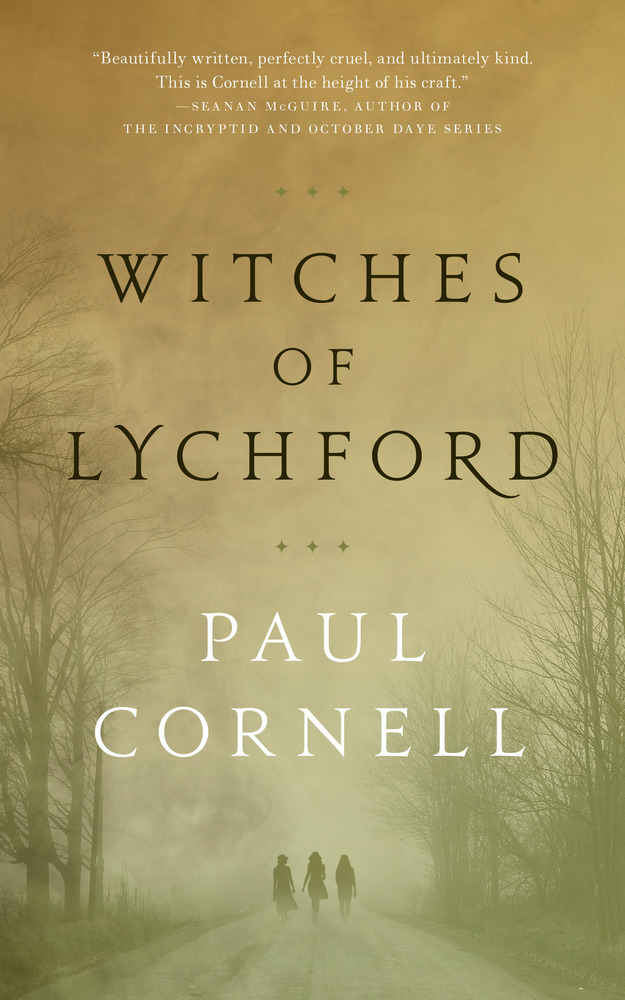 I thoroughly enjoyed London Falling, and so ordered both the sequel, and also this unrelated short story, when I saw them.
I thoroughly enjoyed London Falling, and so ordered both the sequel, and also this unrelated short story, when I saw them.
However, London Falling was a very complicated story that required my attention to keep things straight, so I put off reading The Severed Streets and this short story, because I've been too distracted to keep things straight.
But since this was a short story, I decided to give it a try.
It's marvelous.
Here's the cover blurb:
The villagers in the sleepy hamlet of Lychford are divided. A supermarket wants to build a major branch on their border. Some welcome the employment opportunities, while some object to the modernization of the local environment.
Judith Mawson (local crank) knows the truth — that Lychford lies on the boundary between two worlds, and that the destruction of the border will open wide the gateways to malevolent beings beyond imagination.
Judith is wonderful.
Judith hated nostalgia. It was just the waiting room for death.
The telemarketers who called her up now seemed either desperate or resigned to the point of a mindless drone, until Judith, who had time on her hands and ice in her heart, engaged them in dark conversations that always got her removed from their lists.
(S)he was looking at Shaun, her son, in his uniform. He was pointing at her in surprise.
"You're here. You've taken a side."
"Yes."
"Because I was very much hoping—"
"That I wouldn't."
"Just so we're clear—"
"I won't throw anything."
"See that you don't. I don't want to have to arrest you. Again." He pointed to his eyes and then to her, and, with another glance at her over his shoulder, marched back to his place at the back of the hall.
And that brings me to the dialog, which I absolutely adored.
There are two other main characters, Autumn and Lydia, and they are also lovely.
"'DNA' my arse. If you're coming along, I don't want you coming out with bloody science all the time. You'll be looking at everything through the smallest window."
"The smallest window," said Autumn, "might have the clearest glass."
"It doesn't. It's muddy."
"But the other windows will stay as they are, but this window could be replaced by . . . a big set of French windows, when science catches up with magic."
Judith rolled her eyes. "I'm trying to show you the ineffable and you're planning an extension."
"You said he was a being of tremendous power and evil, but I've looked him up. He's got a wife and family. He's on LinkedIn."
I love well-written short stories, and this is almost perfectly done.
I highly recommend this–it won't take much of your time, but the time you spend will be enjoyable.
Published by Tor.com
May 2016 | Rating: 10/10
The Lost Child of Lychford (2016)
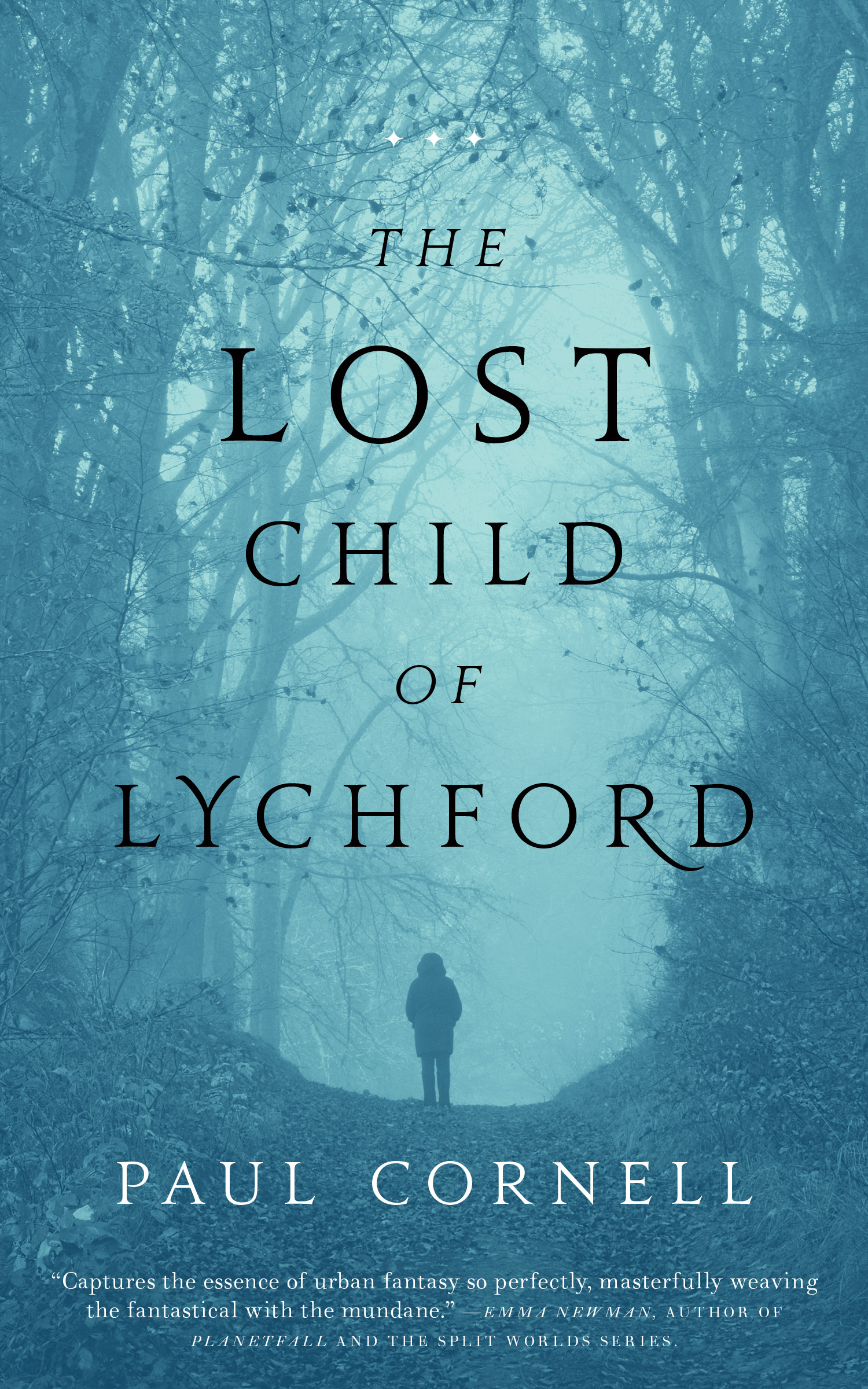 It's December in Lychford, Lizzie's first Christmas as Reverend of St. Martin's–the busiest and most stressful time of the year in the church.
It's December in Lychford, Lizzie's first Christmas as Reverend of St. Martin's–the busiest and most stressful time of the year in the church.
"The song 'I Believe in Father Christmas,'" she continued to Sue and Oliver, her elderly churchwardens, twelve hours later, at their weekly meeting round the vicarage kitchen table, "should be banned. It should be a crime to play it. What else has he recorded? 'Valentine's Day Is Just to Sell Cards'? 'Look Out for Wasps, It's Summer'? Radio stations only play it because it's got that nice bit with the jingle bells, but he's doing that sarcastically. He's doing sarcastic jingle bells."
At times, Lizzie had wondered if the best way to deal with the added numbers might be some sort of video prologue. "Previously, in Christianity . . ."
A Christmas eve wedding added in is making things even more difficult, so when she discovers a ghost following her, she turns to her fellow witches, Judith and Autumn, for help.
I really adore these characters. And I love that one of the main characters is an elderly woman with a strong personality.
"Oh, look at you two, like unicorns at your first orgy," said Judith, for all the world as if that were a thing people said.
Another favorite thing are the bits of life the appear in asides, even in this novella.
Autumn leapt back in her chair. A voice had actually come from her computer. A horribly familiar voice. Then the face associated with that voice appeared, looking out of the corner of her screen, incarnated as a cartoon version of himself. "You seem," said Finn, "to be having trouble opening an email. Can I help with that?"
"No you bloody can't. What are you doing inside my computer? Here, can you see my downloads?"
"I'm only 'inside your computer' in the sense that I'm an email. Can an email see inside your computer? Hey, what's in here, anyhow?"
Autumn was in no way going to answer that. She'd once got very drunk with Lizzie and started talking about her very specific tastes in fan fiction, and thank God the Reverend had claimed in the morning not to remember a thing.
There is also a mystery–the lost boy of the title–and that is also good, but I think my favorite bits are the dialog between the women.
She felt Judith's hand land on her arm, like the skeleton grabbing out from one of those old novelty money boxes. "You're with me, my apprentice," she said. "We're going to try summat."
"Every day," said Autumn, "you remind me more of the Emperor from Star Wars."
Judith considered that for a moment. "Nice to finally get a bit of respect," she decided.
I really love these two books, and highly recommend them.
Published by Tor
November 2016 | Rating: 9/10
A Long Day in Lychford (2017)
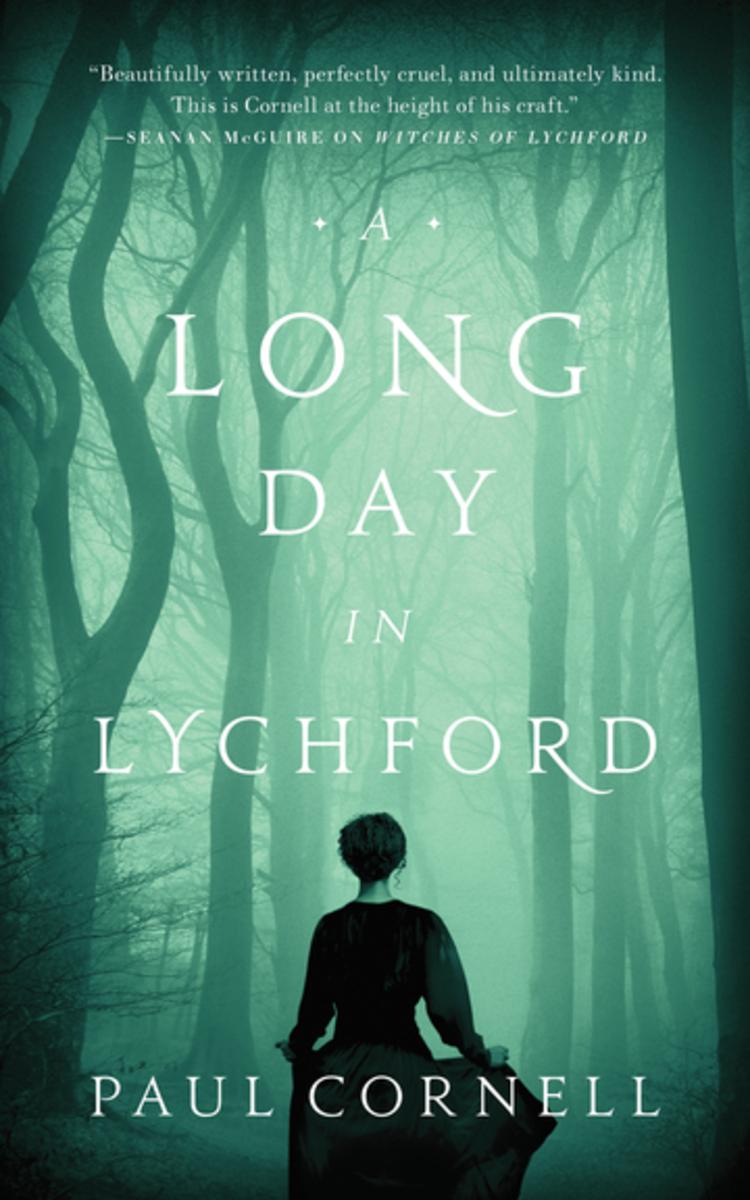 This is not my favorite of the Witches of Lychford stories. It isn't bad, but the three main characters are separated for part of the book, and their interactions are often the best parts of the book.
This is not my favorite of the Witches of Lychford stories. It isn't bad, but the three main characters are separated for part of the book, and their interactions are often the best parts of the book.
Not to say that there isn't plenty of amusement.
A sign loomed ahead in the summer night. "Lychford," he said to the phone.
"I do not recognise the location," the phone replied.
"Of course not."
"I do not understand the instruction."
"Oh, go to hell!"
"Changing route now."
"No! Stop!"
Autumn is awakened by the police (in the person of Shaun Mawson–son of Judith) at her door, with questions about her previous evening. Which she doesn't quite remember.
Autumn felt . . . bloody awful. Not actually entirely . . . hungover, not yet. It was like the hangover was literally hanging over her, waiting to expand to its full dimensions, but had first just wanted to knock on her door to tell her it was getting ready to do its thing. We have a delivery for you, it was saying, and we will not hand it to a neighbour, but intend to unpack it in your every special place.
Judith has her own problems.
For the umpteenth time, she put that matter to the back of her mind. What was worrying her more right now was this note she'd found attached to her fridge by a magnet. It made no sense. The note said:
Remember that your parents are dead, you great fool.
Which was ridiculous, because Judith's parents still lived next door like they'd always done. Only . . . no, that wasn't true, was it?
That is a rather depressing portion of the story, as you might guess.
I also had a little trouble with the magic in this story–I wasn't quite sure I understood the boundaries in the first place, so learning that something went wrong didn't help. It wasn't a huge issue, because I didn't have to know how, just that it was a problem.
But it was still interesting, and I still want to read more about the Lychford Witches.
Publisher: Tor
Otober 2017 | Rating: 7.5/10
Masked (2010) edited by Lou Anders
 Masked is a collection of superhero stories by a variety of writers, many of whom are well known comic writers.
Masked is a collection of superhero stories by a variety of writers, many of whom are well known comic writers.
- "Cleansed and Set in Gold" by Matthew Sturges
- "Where their Worm Dieth Not" by James Maxey
- "Secret Identity" by Paul Cornell
- "The Non-Event" by Mike Carey
- "Avatar" by Mike Baron
- "Message from the Bubblegum Factory" by Daryl Gregory
- "Thug" by Gail Simone
- "Vacuum Lad" by Stephen Baxter
- "A Knight of Ghosts and Shadows" by Chris Roberson
- "Head Cases" by Peter David & Kathleen David
- "Downfall" by Joseph Mallozzi
- "By My Works You Shall Know Me" by Mark Chadburn
- "Call Her Savage" by Marjorie M. Liu
- "Tonight We Fly" by Ian McDonald
- "A to Z in the Ultimate Big Company Superhero Universe (Villains Too)" by Bill Willingham
Matthew Sturges, who writes House of Mystery, wrote the opening story, "Cleansed and Set in Gold." …and I just ended up rereading the story when I flipped through to remind myself of whether I liked it. So yeah, I liked it. David Caulfield has "variable" powers, and those powers are the crux of the story. Fabulous.
"Secret Identity" by Paul Cornell was another story I especially liked. What does the hero identity do to the man who carries the hero around?
Mike Carey is another favorite author, especially his Felix Castor series. "Non-Event" begins at the end, with the supervillain being interrogated after the plan goes all wrong.
Gail Simone's story "Thug" was both amazing and horrible.
"Head Cases" by Peter David and Kathleen David was an odd story. Interesting, and there were a few bits that were hilarious, but I did spend much of the story going, "huh?"
Joseph Mallozzi's story "Downfall" was one of the longer stories, but I loved the twists and turns of a reformed villain being pulled out of retirement by his government minders.
"Tonight We Fly" by Ian McDonald was another story I particularly enjoyed–what's it like for a superhero as he gets older–apparently he becomes crotchety and yells at the damned kids to get off his lawn.
The final story in the series was Bill Willingham's "A to Z in the Ultimate Big Company Superhero Universe (Villains Too)." I love Bill Willingham's Fables so I was looking forward to this story. It was another odd one, and it took me a bit to figure out what was going on.
All in all, it was a fun collection, and well worth checking out.
Publisher: Pocket Books
Rating: 8/10
